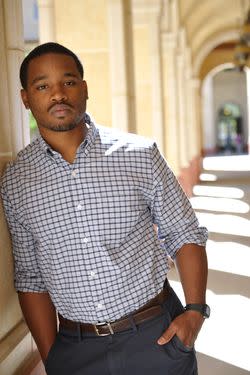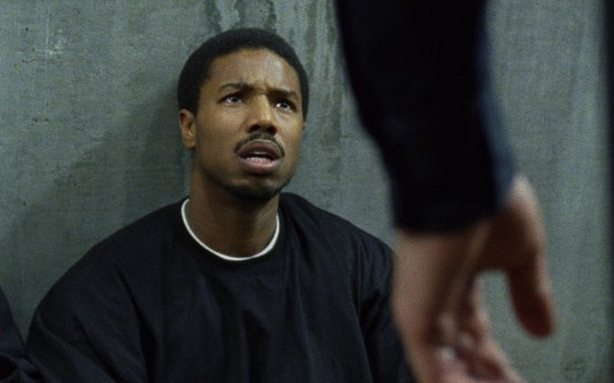Ryan Coogler on Humanizing a Movement for 'Fruitvale Station'
Fruitvale Station, the Sundance award-winner that opens today with a lot of buzz behind it, is a decidedly personal, non-political film about a very political topic: the shooting death of a 22-year-old black man named Oscar Grant III by a police officer at the Fruitvale Bay Area Rapid Transit Station on New Year's Day 2009. One might expect this film to be loud, angry, a polemic: the real-life incident sparked riots in the Bay Area and has undeniable connections to the more recent killing of Trayvon Martin. But for the film's 27-year-old director, Ryan Coogler, the film is simply an endeavor to humanize Oscar. "What I felt was lost was the fact that this guy was a normal person," Coogler told us in an interview Thursday. "He had relationships."
To that end, Fruitvale Station only deals with the after-effects of Oscar's killing in an epilogue. The rest of the film is Coogler's version of the events that led up to the shooting, a sober, in medias res look at a young man's life. Oscar argues with his girlfriend, he plays with his four-year-old daughter, he buys crabs for his mother's birthday dinner, he aborts a plan to sell a bag of weed, he drinks with his friends.
Coogler, a Bay Area native, explained that when he heard about Grant's death, he immediately made a personal connection. "When I watched the footage, I couldn’t help but to see myself in Oscar. We're the same age, from the same location, wearing the same kind of clothes, his friends looked like my friends," he said. "I imagined: what would happen if I didn’t make it home to the people that I cared about." It's a sentiment that, in many ways, echoes President Obama's famous lament: "If I had a son he'd look like Trayvon."
Going into this movie after having been inundated with cable news coverage of George Zimmerman's trial, it's hard to overlook how comparable the stories are. There are even parallels to be drawn in the way the film is marketed. On the Fruitvale website the campaign "I AM__" asks users to "share with the world how you overcame an act of prejudice, bullying, social injustice or mistreatment," just as last year's protesters declared "I Am Travyon Martin." Steven Zeitchik wrote in the Los Angeles Times: "the similarities in the overall circumstances are unmistakable, and when I flipped on CNN the day after the screening, I couldn’t help hearing in Martin’s story pieces of Grant’s tale — a very public civil rights case overlaying the private lives of a family dealing with the inexplicable loss of a young loved one." A.O. Scott mentioned Martin in the first paragraph of his New York Times review. Moments in the film will remind you of current events: when Oscar and a police officer come into conflict over the phrase "bitch ass ni--er" you might be reminded how silly it is that CNN recently used a discussion of that word (and the term "cracker") for ratings.
In a way, though, the comparison between Grant and Martin feels reductive. Martin's story is obviously different that Grant's, and Coogler's aim was to make his audience see that Oscar was an individual rather than a stereotype. "He got split by people that didn’t even know him," Coogler said. On one side of the political debate, Oscar was made a "martyr," on the other a "thug." Young African Americans are minimized in the public eye, according to Coogler: "Media representations of young African American males are often one sided and very narrow to the point that they are dehumanizing, to the point that their lives don't have the same value that other lives have, to the point that people are okay with them dying young."
So Coogler's Oscar is a real person, full of nuance, but in that nuance Coogler hopes that there's a sense that Oscar could be anyone. "I hope that people will watch the film regardless of where they are from, regardless of what their political views are, and regardless of what their ethnicity is, see the film and see a little bit of themselves in the human being in the film," he told us. "See a little bit of their relationships in Oscar’s relationships."
Inset photo of Ryan Coogler via Associated Press


